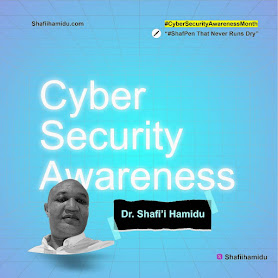Sometimes interview snippets and headlines can be misleading. The clips of the interview posted yesterday shows young privileged politician answering questions with a pitch of arrogance. However, the complete interview is more insightful than the snippets.
A CHAT WITH HON. BELLO EL' RUFAI
Although, I will avoid to discuss specifics issues he raised as we may have some contrasting viewpoints. However, listening to him for this long for the first time, I must admit that I am impressed by his logical reasoning. I see a young man that has armed himself with the knowledge and experience of the political process of Nigeria. Most importantly, he found himself at the epicenter of political earthquake when it happened to his dad recently. His responses to Mr. Seun (the host) shows that he has learnt a lot from it.
As at yesterday when the snippet was released online, I feared that some people will want to get at him through his father’s many political sins ‘figuratively’. But after listening to him I realized that he is matured enough to handle political oppositions that will take such approach. He even accepted that his dad has made some mistakes in past, implying he knows his human side. In his words “my father is not perfect”.
Impressively, he has formed opinions on insecurity, state police, religious regulations etc. Furthermore, he also understands the importance of being a party player. Despite the political differences between his father and the president, he keeps supporting the president all through the interview.
However, my humble advice still stands, moving forward, he should try and desist from discussing his father. He should be discussing himself and what he wants to offer and what he wants to achieve politically. He should create an image for himself. It is difficult to separate the father from the son, but he can do it, if he let the media understand how he wants to be viewed. This is not to say that his dad (the former Governor of Kaduna State H.E. Mallam Nasiru El-Rufai) has not done well politically. Far from it, I personally believe that he is one finest and brilliant leaders that we have from the North. His Excellent service records are there to speak for him in Abuja and Kaduna state.
I understand his social media presence and the pressure that comes with it, but moving forward, he needs to exercise more caution in responding to trolls. I guess that’s the point Mrs. Oby Ezekwesili (a former minister and friend to his dad) was trying to make to him in the past. I hope they amend their relationship.
I know that his comparison of Fashola, El-Rufai and Peter Obi's performances may take the center stage of the interview, but I already settled this issue yesterday. We should set parameters and indicators to assess this argument with facts and figures. In the absence of facts and figures it would be difficult to convince the oppositions on this argument. Otherwise in Burna Boy's voice: there is no evidence. In general, I like the political transition of public debate from father to son.
In conclusion, I congratulate the people of Kaduna North Federal Constituency for getting a very capable representative in the 10th National Assembly.
I look forward to him being interviewed by Arise TV soon, Lol!
Weldon Hon. Bello El-Rufai.
Dr. Shafi'i Hamidu.


